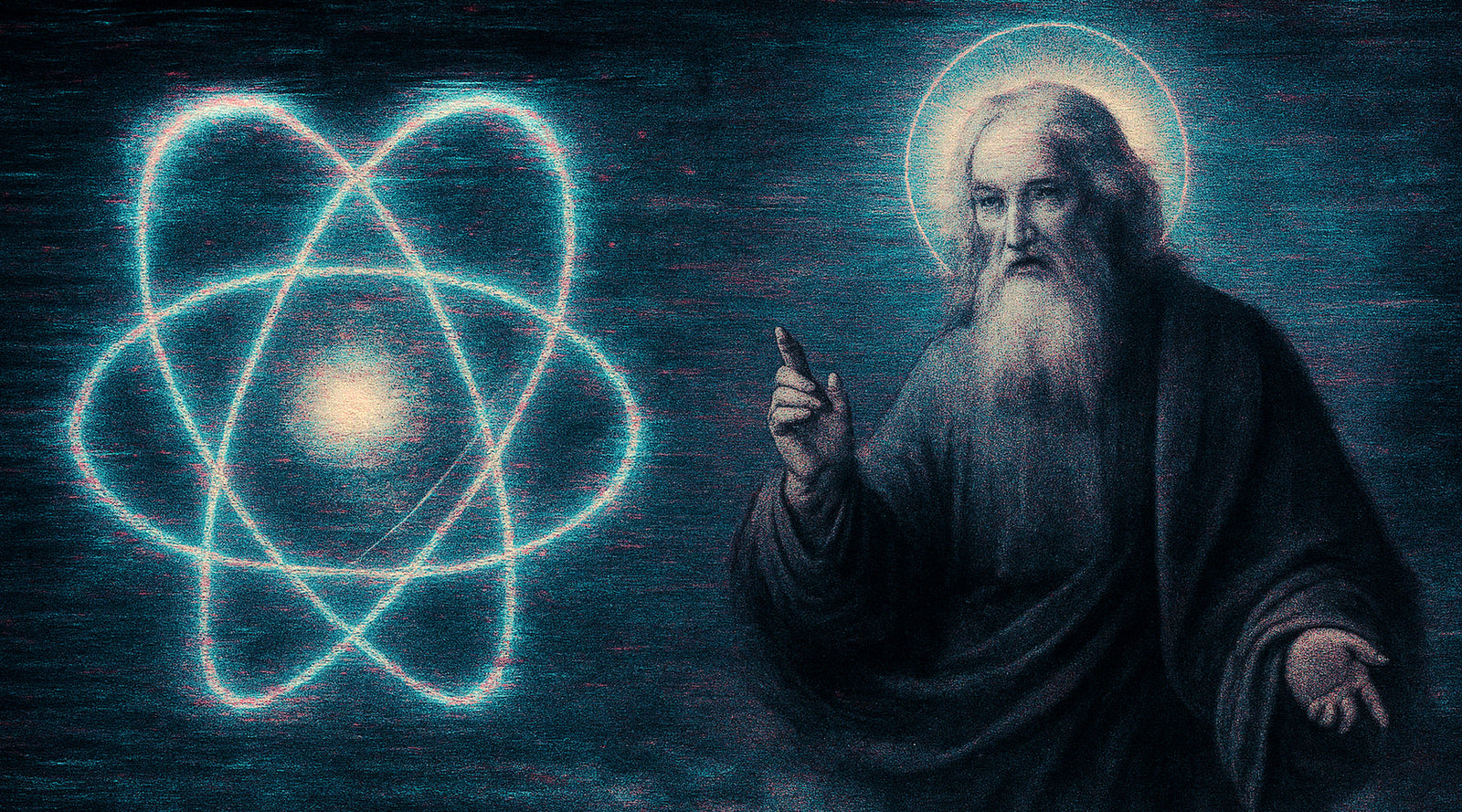Listen to this article
The human mind is wired to search—not merely for information, but for meaning, for coherence, for truth that transcends the flickering shadows of temporal experience. In that search, two worldviews rise like titanic mountains, staring down one another across the battlefield of human philosophy: Christianity and atheism. And though they both require an ascent of faith, only one summit offers a view that is not merely breathtaking, but true.
Christianity, unlike atheism, does not ask us to check our brains at the sanctuary door. On the contrary, it commands us to love God with all our minds. It is a faith rooted in reason, bound to evidence, and married to a metaphysical framework that explains the full scope of reality—matter and meaning, physics and purpose, suffering and salvation. Atheism, meanwhile, often poses as the voice of rationality, but underneath its polished rhetoric lies a hollowed metaphysic—an echo chamber of negation rather than a chorus of meaning.
Atheists like Richard Dawkins will tell you that the universe is a product of blind, pitiless indifference, that you are nothing but a chemical accident, and that all human longing for purpose is merely a byproduct of evolutionary trickery. But Christians like Professor John Lennox, a mathematician and Oxford scholar, see this nihilism for what it is: an intellectual dead-end, a philosophy that denies its own foundation. For in order to even argue against God, one must appeal to objective truth, moral frameworks, and logical structures that themselves cry out for a transcendent source. As Lennox once said, “Atheism is a belief system that cannot even explain the very rationality it uses to attack Christianity.”
Indeed, atheism must borrow from the Christian worldview to function. Logic presupposes order, and order presupposes an ordered mind. Morality presupposes value, and value presupposes a valuer. Science presupposes intelligibility in nature, and that intelligibility implies a Logos—a rational principle embedded in creation. And it was precisely this Logos, this Word, that John the Apostle said “became flesh and dwelt among us” (John 1:14). Christianity doesn’t just accommodate science—it is the philosophical womb from which modern science was born.
It is no accident that the fathers of modern science—Kepler, Newton, Pascal, Boyle—were not atheists, but Christians who believed that nature was decipherable because it was the handiwork of a divine mind. And even in modern times, the list of scientists who have returned from atheism to belief is striking. Physicist Allan Sandage, considered the father of modern cosmology, said upon his conversion: “The world is too complicated in all its parts and interconnections to be due to chance alone.” Francis Collins, former head of the Human Genome Project, began as an atheist, only to be staggered by the moral law written on the human heart and the elegance of DNA’s language, eventually confessing Christ as Lord. Antony Flew, one of the most notorious atheists of the 20th century, publicly renounced atheism late in life, concluding that intelligence must be behind life’s origin—“following the evidence where it leads.”
Quantum mechanics, with its eerie entanglements and observer-dependent realities, has done little to help the atheist cause. Far from supporting a materialist worldview, it has rendered it almost nonsensical. The double-slit experiment suggests that observation affects outcome, implying that consciousness—or mind—has primacy over matter. And if mind is fundamental, then the idea of a Divine Mind becomes not only plausible, but compelling. Werner Heisenberg, father of quantum theory, famously said, “The first gulp from the glass of natural sciences will turn you into an atheist, but at the bottom of the glass God is waiting for you.”
Atheism claims to be free of faith. But it is not. It is a belief that something came from nothing, that life sprang forth from lifelessness, that consciousness emerged from chemical soup, and that objective morality evolved from amoral matter. These are not conclusions based on empirical evidence; they are assumptions based on a metaphysical commitment to naturalism. That is not science—it is scientism. Christianity, by contrast, says that in the beginning was the Word—that reason, beauty, morality, and love are not cosmic accidents, but the fingerprints of a Creator who is both transcendent and personal.
Even suffering, that great stumbling block for many, finds resolution not in atheistic fatalism but in Christian realism. Atheism can weep with you, but it cannot redeem your tears. Christianity, however, offers a crucified God who enters into the abyss of pain, bears the weight of evil, and emerges victorious. It is in the person of Jesus Christ that all the riddles of existence are harmonized—justice and mercy, truth and grace, death and resurrection.
And make no mistake—this is not a retreat into fantasy. It is a confrontation with the deepest structure of reality. When a worldview can account for science and spirit, logic and love, reason and revelation, it deserves not only our respect but our allegiance. Christianity alone presents a universe that is not absurd, but articulate. Not random, but relational. Not silent, but singing with sacred resonance.
So to the thinking man or woman standing at the crossroads between belief and unbelief, let me say this: you do not have to choose between faith and intellect. You only have to choose which faith—one that says your soul is the result of time plus matter plus chance, or one that says you are fearfully and wonderfully made, bearing the image of the Eternal.
Choose wisely. Because what you believe about ultimate reality will shape everything you are, and everything you become.
Wearing Your Faith Starts Here — Explore Faith Mode’s Bold, Christ-Centered Apparel Now!


